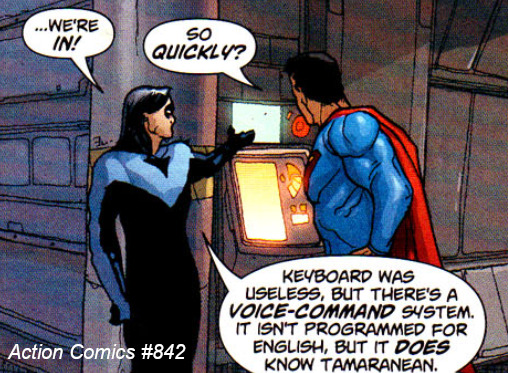#English Proficiency Levels
Explore tagged Tumblr posts
Text
Unlock Growth Opportunities with Online English Tutors
Continuous professional development is very important for success in today’s changing work world. Online English tutoring provides a valuable learning experience. It helps professionals improve their language skills. By choosing online English tutoring, professionals can stand out in global workplaces. This makes it a wise choice for growing their careers.
Employing Online English Tutors for Professional Growth
In today's connected world, good English communication is very important for career growth. Online English tutors offer personal help that makes learning easier. Whether you want to write strong reports, give great presentations, or work well with others around the world, targeted language training is important.
So, where should you start? It's crucial to plan your language learning. First, set clear goals and know your current skill level.
Identifying Your Development Goals
Before you start online English tutoring, you need to set clear goals for your development. Think about the work situations where better English skills will help you the most. Is it for giving a big presentation to international partners, writing strong research papers, or managing a global team better?
Knowing these learning goals will help your private tutor support you every step of the way in making a custom teaching plan with a perfect English tutor today. If you want to improve your essay writing skills with private tutoring and write more convincingly, your lessons will focus on grammar, vocabulary, and telling good stories. If you're looking to get better at speaking, the lessons might include practice for everyday job conversations.
By sharing your goals, you help your online English tutor create lesson plans that meet your special work needs.
Assessing Current English Proficiency Levels
An honest look at your current English language skills is very important for your English studies and language studies, especially as you prepare for your journey into secondary school. It helps to set clear goals for your progress and determine the right fit for your learning needs. You need to know your strengths and weaknesses in different areas of English, like reading, writing, listening, and critical thinking skills. Many online platforms offer tools to assess your skills or have tutors who can evaluate you at first.
Maybe your writing is good, but you find conversations hard. Or perhaps you listen well, but you get nervous about giving presentations. Knowing these differences helps you go into online English tutoring with a clear plan.
When you spot the areas that need work, you help your tutor adjust their teaching. This way, they can focus on improving specific skills, which leads to a better and more effective learning experience.
The Benefits of Online English Tutors for Professionals
Online English tutoring with engaging tutors gives many benefits that go beyond regular classroom learning. You get personalized attention and flexibility. It is very convenient and fits well with a busy work schedule.
This way of learning helps you improve faster. It lets you use your new language skills directly at work. So, online English tutoring is a great investment for professionals.
Customized Learning Paths for Each Professional
Online English tutors are great at creating personalized learning paths that fit each person's needs. Instead of using the same courses for everyone, tutoring sessions focus on your strengths, weaknesses, and career goals. This allows you to spend less time on things that don't matter and helps you learn faster.
For example, a marketing executive working on international campaigns might need to improve their persuasive writing and create strong marketing text. A software engineer who works with teams around the world may need to learn technical terms and how to communicate clearly in online meetings.
Skilled tutors can spot these different needs. They make unique lesson plans that fit your exact work situation. This tailored way of learning helps you achieve quicker and more useful results.
Flexibility and Convenience of Scheduling
Balancing work duties and personal tasks usually gives you little time for regular classes. Online English tutors provide great flexibility and convenience in setting up lessons. This is very helpful for busy people.
There’s no need to rush in traffic or change your plans. With online tutoring, you can learn from any place that has the internet. You can have lessons during your lunch break, early in the morning, or late at night. This lets you comfortably fit learning into your daily routines.
This kind of flexibility helps you focus on your professional growth without changing your life too much. It allows you to keep to a regular lesson schedule, which helps you make steady progress.
Access to a Global Pool of Tutors
Online platforms have changed how we access education, including English tutoring. Now, you can connect with many qualified English tutors from all over the world.
This broader access has clear benefits. You can learn from native English speakers who have different accents and cultural backgrounds. You can also select a tutor based on your specific job needs.
Having a variety of tutors helps create a rich learning experience. You will get to know different teaching methods and the subtle differences in English communication from around the world.
How to Find the Right Online English Tutor
Finding the right online English tutor can seem hard with so many options out there. But, if you focus on getting recommendations, checking qualifications, and thinking about how well you fit together, it can make the selection easier.
Take your time to choose a tutor who suits your learning style and career goals. This will help you a lot in improving your language skills.
Utilizing Professional Networks for Recommendations
Finding the right online English tutor often begins with using your professional network. Friends, colleagues, or mentors who have used English tutoring can give you helpful recommendations.
You can contact your connections on LinkedIn, or ask groups and organizations you are part of about their experiences with online tutors. Hearing first-hand feedback about teaching styles, how well the tutors work, and their platforms can be really useful.
Recommendations give you insights that are better than online profiles and reviews. They provide a personal view, making it much more likely that you will find a tutor that fits your specific needs.
Evaluating Tutor Qualifications and Experience
While personal recommendations can help you start, it's important to study a tutor's qualifications and experience. Check for certifications like TEFL, TESOL, or CELTA to see if they know how to teach English as a foreign language.
Think about their years of experience, especially if they teach professionals, and learn about their teaching style. Some tutors are great at structured lessons focused on grammar, while others focus more on conversation and how to use English in real life.
Understanding these details helps you pick a tutor whose style fits your learning needs. This can boost your progress.
Conducting Interviews and Trial Sessions
Most reputable online tutoring platforms offer trial sessions, allowing you to interact with potential tutors before committing. Utilize this opportunity to gauge their communication style, personality, and teaching approach. Prepare a few questions beforehand to understand their experience working with professionals in your field.
table { font-family: arial, sans-serif; border-collapse: collapse; width: 100%; } td, th { border: 1px solid #dddddd; text-align: left; padding: 8px; } tr:nth-child(even) { background-color: #dddddd; }
Key Questions to Ask Potential Tutors What is your experience teaching English for professional purposes? How do you tailor your lessons to meet individual learning goals? What interactive tools and resources do you incorporate? What is your approach to providing feedback and tracking progress?
These initial interactions are crucial. They help you determine if you feel comfortable with the tutor and confident in their ability to support your professional development.
Setting Up a Structured Learning Plan
Once you pick your online English tutor, it is important to create a clear learning plan together. A good plan acts like a guide for your journey to learn the language. This will help you make steady progress and use your time well.
You should regularly check and change this plan with your tutor. This way, it will always fit your changing work needs and learning goals.
Establishing Clear, Achievable Objectives
A clear learning plan is very important for good online English tutoring. Start by setting clear goals that you can achieve on your journey to learn the language. Break your big goals into smaller steps that you can track.
For example, instead of saying you want to "improve English fluency" in general, set specific goals. You could aim to "learn 200 new professional words in three months" or "give a 10-minute English presentation with confidence in six weeks."
These goals, which are SMART (specific, measurable, achievable, relevant, and time-bound), will keep you motivated. They will show you how far you have come and give you a sense of success as you move through your lessons.
Integrating Professional Scenarios into Lessons
To make your online English tutoring more helpful and relevant, add real-life work scenarios to your lessons. Talk to your tutor about how you can include situations from your job, like mock presentations, negotiations, or conference calls.
For example, if you are in marketing, focus on writing catchy marketing content, giving pitches, or joining online talks about trends in your field. By practicing with real-life examples, you will build confidence and get useful skills to use your improved English at work.
This hands-on approach helps you learn better, connecting theory with real use.
Regular Monitoring and Feedback Mechanisms
Consistent checking and feedback are very important for improving over time. You should work with your tutor to set up a way to track your progress and find areas that need more focus.
This could include regular tests, practice presentations, or looking over written work. Helpful feedback from your tutor is very useful. It helps you improve your pronunciation, grammar, vocabulary, and communication style as a whole.
By seeing feedback as a chance to grow, you create a way of thinking that supports ongoing improvement. This will help you get the most out of your online English tutoring.
Maximizing the Benefits of Online English Learning
Using interactive tools and finding real-world chances will boost your online English learning. Online platforms give you the chance to use many extra resources.
By including English in your daily life and looking for ways to practice, you will learn faster and make better progress.
Embracing Interactive Technologies and Resources
Modern online English tutoring uses more than just textbooks and worksheets. It includes fun technology that makes learning engaging and effective. Many platforms have tools like virtual whiteboards for teamwork, voice recorders for practicing pronunciation, and large libraries of articles, videos, and podcasts.
You can also explore apps and websites for language learning that work well with your lessons. Try to engage with English media, like movies, TV shows, or music, to help you naturally learn the language.
By using these lively resources, you change your learning experience into an enjoyable journey.
Encouraging Real-world Application
While structured lessons give you a good base, using English in the real world is very important for strengthening your English skills. Take every chance you get to speak English outside of your tutoring sessions.
You can volunteer to give presentations or lead meetings at work. You can join international online forums related to your field. You can also start conversations with English speakers. Trying these things, even if they feel scary, will help you become more fluent and confident.
The more you use English in everyday situations, the easier it will feel. This real-world practice is essential for turning your English skills into something useful in your job.
Leveraging Feedback for Continuous Improvement
Feedback is very important for getting better at learning. Look at feedback from your tutor, classmates, and yourself as a chance to grow in your online English learning. Don't avoid helpful criticism. Instead, use it to improve your skills.
Keep a journal to watch your progress. Write down where you have improved and where you need to focus more. Review your work often and ask your tutor for help with challenges. This cycle of asking, thinking, and improving is key to getting better.
When you include feedback in your learning, you turn each lesson and meeting into a step forward for your growth. This effort to keep improving leads to great benefits in your English skills.
Addressing Challenges in Online English Learning
Online English learning can work well, but it comes with some challenges. You might face technical issues, distractions, or problems staying motivated. To keep moving forward, it is important to tackle these issues head-on.
You can use simple strategies and keep good communication with your tutor. This way, you can deal with the problems easily and have a rewarding learning experience.
Overcoming Technological Barriers
While technology helps with online English learning, it can also cause problems. Make sure you have a strong internet connection. You will need a device that has a microphone and camera. It's important to know how to use the features of the tutoring platform.
You might face some technical issues, so get ready to fix minor problems. If you have ongoing tech issues, talk openly with your tutor. It’s smart to have a backup plan too, like making a phone call or changing the session time if needed.
Solving these tech challenges will help you learn without avoidable disruptions. This way, you can focus on what matters: improving your English skills.
Ensuring Consistent Motivation and Engagement
Maintaining motivation is very important when learning anything, including English online. The convenience of online learning can sometimes make people puts things off or feel less involved.
You can handle this by setting realistic goals. Break your learning into smaller steps and celebrate your wins along the way. Mix up your study materials. Use interactive tools, real English content, and chances to apply what you learn to keep lessons fresh and exciting.
Always remember that putting in consistent effort leads to the best results when learning a language. Keep in touch with your tutor and share any problems you have. Look at this learning journey as a way to grow in your career.
Conclusion
In conclusion, using online English tutors is a smart choice for your career growth. It helps you reach your language goals step by step. You can create personalized learning plans that fit your needs. You also have access to many tutors from all over the world. Learning online has many benefits because you can learn flexibly and conveniently. Real-life examples and getting feedback are important for improving your skills. Although there might be problems like tech issues and staying motivated, having regular check-ins can help you keep track of your progress. By choosing online English tutoring, you can boost your language skills and enhance your career. Begin your journey to learning today.
Pin or save this post for later!
Share in the comments below: Questions go here
#Online English Tutors#valuable learning experience#language skills#global experience#career growth#professional growth#writting skills#english proficiency levels
0 notes
Text
What Do You Know About English Proficiency Levels? How Long Does It Take to Complete These Levels?
Levels for English Proficiency
There are different frameworks that classify English proficiency into levels, but one of the most commonly used frameworks is the Common European Framework of Reference for Languages (CEFR).

The CEFR describes language proficiency in six levels, from A1 (beginner) to C2 (advanced):
A1: Beginner level
At this level, you can understand and use familiar everyday expressions and very basic phrases to meet simple needs.
A2: Elementary level
At this level, you can understand sentences and frequently used expressions related to areas of immediate relevance (e.g., personal and family information, shopping, local geography) and communicate in simple and routine tasks.
B1: Intermediate level
You can handle the majority of circumstances that are likely to emerge while travelling in a country where the language is spoken at this level, and you can comprehend the main ideas of clear standard input on familiar topics frequently encountered in work, education, leisure, etc.
B2: Upper-intermediate level
You can comprehend the major points of complicated texts at this level, including technical conversations in your area of expertise and complex texts on both tangible and abstract issues. Regular engagement with native speakers is fairly doable without any stress on either party when you can communicate with a level of fluency and spontaneity.
C1: Advanced level
You can comprehend a variety of challenging, lengthier texts at this level and perceive implicit meaning. Without much overt seeking for words, you can speak clearly and naturally. Flexible and effective language use is possible in social, academic, and professional contexts.
C2: Proficient level
At this level, you can understand with ease virtually everything heard or read. You have the ability to synthesize data from many oral and written sources, reassembling claims and narratives into a cogent presentation. Even in increasingly complicated scenarios, you are able to express yourself flexibly, smoothly, and clearly while discerning between finer shades of meaning.

How Long Does it Take to Reach Level A1?
The amount of time it takes to reach A1 level in English proficiency can vary depending on several factors such as your language learning background, your motivation and dedication to learning, and the amount of time you devote to practicing.
You can also join professional English learning classes to enhance your English language skills.
However, according to the CEFR, it generally takes around 80-100 hours of instruction and practice to reach A1 level of English proficiency.
If you are studying English for around 2-3 hours every day, it may take you around 1-2 months to achieve an A1 level of proficiency in English. Keep in mind that this is just a rough estimate, and your actual learning time may be shorter or longer depending on your individual circumstances.
It's also important to note that language learning is a continuous process, and even after achieving a certain level of proficiency, you'll need to continue practicing and improving your skills to maintain and further develop your proficiency.
How Long Does it Take to Reach Level B1?
The amount of time it takes to reach B1 level in English proficiency can vary depending on several factors such as your language learning background, your motivation and dedication to learning, and the amount of time you devote to practicing.
However, according to the CEFR, it generally takes around 350-400 hours of instruction and practice to reach B1 level of English proficiency.
If you are studying English for around 2-3 hours every day, it may take you around 4-8 months to achieve a B1 level of proficiency in English. Keep in mind that this is just a rough estimate, and your actual learning time may be shorter or longer depending on your individual circumstances.
It's also important to note that language learning is a continuous process, and even after achieving a certain level of proficiency, you'll need to continue practicing and improving your skills to maintain and further develop your proficiency.
How Long Does it Take to Reach Level C1?
The amount of time it takes to reach C1 level in English proficiency can vary depending on several factors such as your language learning background, your motivation and dedication to learning, and the amount of time you devote to practicing.
However, according to the CEFR, it generally takes around 600-750 hours of instruction and practice to reach C1 level of English proficiency.
If you are studying English for around 2-3 hours every day, it may take you around 2-3 years to achieve a C1 level of proficiency in English. Keep in mind that this is just a rough estimate, and your actual learning time may be shorter or longer depending on your individual circumstances.
It's also important to note that language learning is a continuous process, and even after achieving a certain level of proficiency, you'll need to continue practicing and improving your skills to maintain and further develop your proficiency.

At what level, You Can Crack IELTS and TOEFL?
The IELTS and TOEFL exams assess English language proficiency across all CEFR levels, from A1 to C2.
For the IELTS exam, a score of 5.5 or above is typically required for admission to universities in English-speaking countries at the B2 level, while a score of 6.5 or above is typically required for admission to more competitive universities at the C1 level.
For the TOEFL exam, a score of 79 or above is typically required for admission to universities in English-speaking countries at the B2 level, while a score of 100 or above is typically required for admission to more competitive universities at the C1 level.
Keep in mind that the scores required for admission to universities may vary depending on the institution and program you are applying to, so it's important to check the specific requirements for the universities and programs you are interested in.
Also, achieving a certain score on these exams does not necessarily mean that you have reached a particular CEFR level, as the exams are designed to assess specific language skills and competencies.
Students who are serious about cracking these prestigious examinations can enroll themselves in IELTS training courses or TOEFL Training Sessions for success.
0 notes
Note
Do blessings need to be in Hebrew? I remember reading that blessing in your preferred tongue works just fine. If you want to do Hebrew because it's a beautiful language I completely understand
Not necessarily, but it doesn't hurt! I see being able to pray and come up with blessings as proof of understanding hebrew, which I haven't gotten to yet. My proficiency has a lot to be desired, but one day, I'll try my hand at thinking and writing different blessings for all sorts of things in hebrew!
#ask#jumblr#i love hebrew as a language - to me i see it as the language my soul knows#and learning hebrew is - like conversion - aligning my soul with where it belongs#english is a great language but it isn't one that i connect with to such a deep level#i've been learning spanish for Years now but i don't connect with it as much as i connect with hebrew#which is why i want to be able to be proficient enough to think up one on the fly!#i like to ramble about this anon okay 😂😂#i don't want it to come across as i think one kind of judaism (like judaism in hebrew rather than english) is superior#it's just how i personally find enjoyment in judaism. in fact i like that we mix hebrew and english in shul during shabbos service!
18 notes
·
View notes
Text
tw vent
#i was super duper excited because at the end of last year i took a test#and i got a high enough proficiency level that i could skip spanish 4#still am excited#my teacher said i really should do it#and it made sense#i thought that it would be so great etc yk because people want to be there in spanish 5#you've already taken 4 years#anyway it is#just not for me because I know no one#and in trying to find somewhere to sit#ofc i end up at a table with the kids who shouldn't fucking be there#they speak in english constantly#how am i supposed to learn?#and i really want to learn like really really want to#i also wanted to make friends#like its spanish 5#people talk in spanish whole class#always to the teacher#discuss in table groups#not these people#bro is talking about his gf being bi in the middle of class like#one of them didn't know lunes was monday#i want to cry#i actually have cried#then we had to present something and i tried but it's like the joke of the class#I AM SO DISAPPOINTED maybe it will get better but AHHH#i thought it would be so much better it could be so much better#idk what to do i could talk to the teacher but i don't want to be that kid#i want people to like me but I just really want to learn#it has only been two days but still
6 notes
·
View notes
Text
just so y'all know, may 17th will probably be the day of my metaphorical death
#taking the proficiency cambridge certification#which basically states that you can speak english like your native language#and yeah I'm a bit terrified#considering I live in italy; don't have any english ancestry and have never been to an english speaking country in my entire life#but it's the next level from my current one so yeah#also totally forgot this but I'm only 17 lmao
9 notes
·
View notes
Text
honestly, my husband buying me this laptop is such a game-changer. he is the absolute best. after all the craziness of moving to a whole new country and culture, having an emotional rollercoaster with all the excitement and destruction of routine (and then slowly building a new one uuuugh), while looking for flats and going back to work with a 8h difference, drinking lots of tea; and being happy that Otto, the cat, still recognizes me — I'm feeling like typing on this keyboard finally feels right again! thank God!
#also speaking english full time has the power to shut down my brain#usually i take at least 3 months to not have gaps of understanding anymore#you can speak 20 languages but the proficiency level is what will eat your soul
5 notes
·
View notes
Text
im gonna be honest. these art classes r some of the only college classes that have stuck with me
#being ‘proficient’ made me so uninterested in stuff it was super draining#like i could do it but i literally wasn’t feeling passion. kay…#for the love of god even chem after all of that hell. i only remember the periodic table (not even all of it tbh) and uhhh what chemicals#not to mix. or you’ll die.#English and arts and languages were the only ones I felt passion for ough#i felt like a bot majority of them time and was just so dead#i hate the level system that prep schools put in place. very demeaning#doing this shit for 14 years ough wow what a pain in the ass
4 notes
·
View notes
Text
at a stage in my life where i feel like i have no full fluency in any language
#i'll never be on the level of a native speaker in english even though it's been my main language for everything for almost 5 years. and#because of that i have lost most of the more refined skills in finnish that a native speaker is supposed to have bc i've been using finnish#exclusively for texting and casual conversation. and my swedish is at a level where i'm scared to take a proficiency test for a mandatory#course. and spanish i can read at a very basic level but i wouldn't be able to make conversation anymore#so yeah anyways i should do something about this#personal
8 notes
·
View notes
Text
Trying to sign up to this freelance website as a ghostwriter/essay writer/etc & realising that truly the only thing I don’t like writing is bios
#especially of myself. like if you give me your info i could probably make a good bio out of it#but talking about MYSELF?? i’ll vomit#maybe i should just try to have an out of body experience & talk about myself in the third person#or i could just make a list of the stuff i want to include and write it as a paragraph (to show i can write)#and then bulletpoint the skills they need to be able to scan through quickly#so like. 10 years experience writing high quality essays. pretty much lifelong passion for creative writing. high level of education#(master’s degree i have not used even once); plus i’m a qualified english & efl teacher so i know the english language like the back#of my hand; i.e. i can and will proofread for you & can almost guarantee that any final draft i send will be mistake free#types 92wpm. indecisive about writing programs so is proficient with microsoft office; ios office; google docs etc; scrivener; libreoffice..#please send in research/resources for essay writing otherwise i will just use the first 5 articles i see on jstor no matter how well or how#badly they suit the hypothesis#also please don’t make me do referencing in any style other than chicago#like.. i’ll do it but i’ll be crying the whole time#married to the oxford comma & the semicolon. will not write wiki articles due to a bad experience#but will write pretty much anything else#oh also not bios apparently#literally hire me. like. i’m great#personal
3 notes
·
View notes
Text
The Many Languages of Dick Grayson
Apparently, according to Nightwing #54, he can speak 12, so I went on a little quest to see just how many I could identify.

Starting off with The Essential Batman Encyclopedia, the entry for Dick Grayson lists him as being trained in French, Spanish, Russian, Japanese, Mandarin, and Cantonese with having some proficiency in an unknown Romani dialect. Given there are multiple examples of him speaking these languages throughout the comics, I am inclined to trust this claim. To start, we've got several examples of French (Gotham Knights #14, Detective Comics Annual #12, Nightwing #73, Grayson #10-- also featuring Spanish)


In Grayson #1 he speaks Russian only briefly, but in Detective Comics #36 he speaks it throughout.


As far as the Chinese languages go, while I believe Dick can speak Mandarin and/or Cantonese fairly well (Batman/Superman World's Finest #3), his Hanzi recognition and literacy could use some work.

Similarly, when the Titans head off to Japan in Titans Annual #1, we have Nightwing speaking Japanese in battle; however, when it comes to the prospective job of being a manga translator in Nightwing #125, he claims he doesn't know Japanese, which leads me to believe he is only proficient in speaking Japanese/Chinese and struggles with the writing systems.


So what about the languages not covered in the encyclopedia? To start, we have another romance language: Italian (Nightwing #72).

Followed by some alleged German (Nightwing #51, JLA #44)


And conversations in Farsi (Robin #175)

While I've seen some Tumblr and Reddit posts claim he knows Kikuyu, The Power Company: Manhunter #1 only says he "brushed up" on his Kikuyu before going to Kenya, so it is unknown how much of the language he actually speaks, but to me it doesn't seem likely to be a lot.

He also, to some unknown degree, speaks Tamaranean-- at least enough to hack into an alien computer (Action Comics #842).

As far as unspoken languages go, Dick is fluent in ASL, which is proven numerous times when he communicates with Jericho (New Teen Titans 1984).


And lastly, the two languages that remain rather uncertain are Romani and Cant-- largely due to the nature of the languages themselves and their representation in comics. "Romani," for instance, has several different dialects, and when Devin Grayson introduced it for Dick (Gotham Knights #20-21, Nightwing #91), she never specified which, and based on the lines she wrote, her research into the language was questionable at best. Writers since have recognized Dick's Romani heritage, but have not otherwise suggested he retained much of the language to be considered fluent.
Cant is an even wider term than Romani and can be seen as more of jargon for a particular language than a language itself, sometimes even being called a "pseudo-language." The colloquial term for American circus cant is Carny, or "Carny speak" as Boston Brand puts it in Batman: The Brave and the Bold #14 when he and Nightwing encounter a kid who speaks it.


So... this leaves us with 11 languages Dick has notable proficiency in: English, French, Spanish, Italian, Russian, German, Japanese, Mandarin, Cantonese, Farsi, and ASL. And ~3 languages he has unknown proficiency in: Tamaranean, Kikuyu, Romani, and Carny/Cant (if you want to count it).
Maybe memory-loss Dick was including either Tamaranean or Kikuyu in that count from Nightwing #54, or maybe he knows some other language we haven't seen yet. Given how close the family is to the Al Ghuls, I personally think it would be cool if one of them was Arabic.
But anyway, hope you enjoyed this post! A lot I've seen covering this topic are very surface-level and label some of his more iffy languages as "fluent," so I hope this cleared things up. I've read tons of Nightwing, and I swear there are more examples, but sifting through the 1,000+ comics I've read of him is a lot haha. If y'all know of some others, let me know!
#nightwing#dick grayson#romani dick grayson#boy wonder#first robin#language#polyglot character#multilingual character#dc comics#i tried to keep the romani and carny part brief#you could write a whole essay on the languages#i could also write a whole essay on devin grayson's romani rep#or lack thereof#and its problematic nature#but that's a post for another day
535 notes
·
View notes
Text
it’s my hair day omggggg so excited 🫣
#also nervous#it says the stylist i chose has a beginner level english#there were stylists there who had higher english proficiency but i didn’t want a man touching my hair lmao 😭#so i hope i can get by w#mix of eng and jpn#but it’s an international salon so she should understand like hair terms in english
1 note
·
View note
Text
Blitz's has dyslexia 🙂

Him singing it is just so cute.
He dose know the alphabet as Blitz gets it right right after this. So this is an ordering issue.
(I still have to use the alphabet song to get it right, and worked at a library for a while and used to tutor English).


Dyscalculia is a fairly normal side effect of dyslexia, and is under the same umbrella term.
This can make estimating groups on the fly very difficult.
Blitz struggles to switch language tracks, and doesn't pick up that Loona's making a joke out of he skinning the manly meat with the manly men.

Blitz is normally great at these sorts of dirty jokes, but because it was unintentional he doesn't spot it.
This is because being serious and puns/jokes are sorted in a different 'box'.

Stols - Blitz spell a lot thing as they sound, with a few transportion errors like night to nihgt, and some typos like missing the o in sorry, or missing words out.
As he says Sto-lus, that gets shortened to Stol's when said quickly. It's a cute nickname. 🙂
He also occasionally reverses letters.

(oh look a nice wee pile of evidence).

Transcription - the case files are written by Blitz dictating to Moxxie. This is normal adaptation for working around this disability.
Ok addressing the elephant in the room, cus someone always says it. "But Blitz is just uneducated".

He got in and went to collage. (Dropping out was probably to do with the fire. Blitz is met to have been around 19-20 when that happend).
And Fizz, who he grew up with and worked the same job; has perfect spelling. They would have had the same people teaching them.

Honestly this idea bugs me a lot, because it's equating being poor to a lack of education. And then spelling proficiency as a stand in for intelligence level.
We saw this when people were trying to claim Blitz was too thick to use the word supremacist. 🤦

This ties in to whole host of classist and ableist tropes.

Blitz can with alot of effort Sometimes spell correctly, when it's very important. (For Fizz and Loona).

It takes 4x as much energy for dyslexics to do these tasks. It's common to sometimes get it right, but not others.
Dyslexia is kind of short working memory issue.
Working memory is the time you can hold something like an image, or a string of numbers, in your head before it fades.(Human ram). If it's short it can be extremely difficult to get it into long term memory.
So rote tasks with nonsensical none phonetical rules don't stick well. (Eg Fonetic).
Blitz getting it right some of the time, when trying hard at the hospital tracks. Cus he doesn't want to stress Loona out more.

The 'wiring' of dyslexic brains also makes it difficult, because reading and writing are processed across both hemispheres. Nerotypicals all do that one side, which is quicker as less far for the impulses to travel.
We also don't get the visual overlay trick that alot of Nerotypicals get. The thing were you can see the spelling in your imagination and copy that pattern to spell it right every time. (Anyone able to do this is so cheesy 😛).


And lastly Blitz talks a mile a minute, but only write a few short replies to Stolas' wall of texts. (Which are probably tricky to read as of bad formatting).
Here's hoping Stolas gifts him a better phone with a good spell check, and speech to text at somepoint. Then he gets more than just memes.

321 notes
·
View notes
Text
Archie “Frost” Campbell Profile

》[Open Profile] Disclaimer: as I’m still working through the lore of Task Force Dagger, Archie’s biography is still quite bare. Everything else is finished :)
General
Name: Archibald (Archie) Charles Campbell
Callsign: Frost, Dagger-01 (TFD)
Age: 29
Birthday: 16th November, 1995 - Newcastle, NSW, Australia.
Face Claim: Callum Turner (Specifically - ‘Bucky’ from MOTA’)
Occupation: Fast Jet Pilot (F-35A Lightning II)
Affiliation: Royal Australian Air Force (RAAF - 75th SQN)
Rank: Flight Lieutenant (FLTLT)
Height: 183cm (6ft)
Education: Bachelor’s Degree in Aviation
Languages: English, Spanish, German
Appearance
Hair: Dark brown, wavy hair. Short back and sides.
Eye Colour: Grey
Facial Hair: Pencil moustache
Marks: None
Tattoos: None
Family
Unnamed Mother and Father
Grandfather (Former RAAF 460 SQN)
Pet: Vader (Black cat with white markings on face)


Affiliates
Task Force Dagger
Captain Lachlan Jones (2CDO)
Sergeant Damien Whitlock (2CDO)
Sergeant Daniel Greenhill (2CDO)
Sergeant Joseph “Joey” Hernandez (CCT)
Talullah Jones (ASIS)
Personality
Myers-Briggs Type: ISTJ (Logistician)
Honest and Direct: Archie is a straightforward, no-bullshit kind of person. Will tell his peers how it is without holding back.
Observer: Not one to talk much unless needed, Archie prefers to observe and analyse his peers or situation.
Archie is a level-headed person. He is calm and is able to keep his cool under difficult situations.
Archie doesn’t let his emotions drive his thought process. He is a logical person who bases his thoughts and opinions based on research and experience, and can become stubborn when he doesn’t particularly agree with something.
Skills
As a fighter pilot, Archie has inherited a range of skills apart from simply flying a fighter jet. There include:
Mental Skills: quick and accurate decisions, situational awareness.
Technical Skills: navigation, avionics, flight system and weapon proficiency.
Social Skills: effective communication, cooperation and working as a team, leadership.
Air Combat Manoeuvring (ACM), Fighter tactics and manoeuvres, etc.
Mission Planning
Maths and Physics, as well as creativity in situations.
Survival, Evasion, Resistance and Escape (SERE)
Archie also likes to partake in electrical work, commonly seen tinkering with devices and studying mechanical/electrical engineering concepts in his spare time.
Behind the Callsign
At a glance, “Frost” derives from his frosty attitude towards his peers around him. Being one to keep to himself majority of the time and only speaking when necessary, his attitude was often perceived as cold to others, even when he didn't mean it.
Though if you were to ask his squadron and ground crew, they’d tell you that they call him “Frost” due to his impressive flying skills, often leaving onlookers and other pilots frozen in awe. Almost like an advantage over opponents.

Biography
Archie was born in Newcastle, New South Wales, Australia on the 16th of November, 1995. Growing up, Archie would listen to his grandfather’s stories of being a pilot on an Avro Lancaster throughout the majority of WW2. Though a little incoherent at times, Archie still enjoyed them regardless as they shaped his childhood and future to come.
Throughout high school, Archie would spend a lot of time volunteering at an aviation museum alongside his grandfather as a technician assistant, working on maintaining planes on display whilst rambling bits of information of various planes to visitors. Archie would also frequent RAAF base Williamtown, where he would stand just outside the base and watch Super Hornets scream over his head. He wasn’t the type to stand out among his classmates, much preferring to stick his head in a book and soak up as much information as he could on various aviation and engineering topics. He graduated with a top ATAR score of 97.
Thanks to his constant exposure to the Air Force along with his grandfather’s stories, Archie knew he wanted to become a fighter pilot from an early age. In his later years of high school and after, he worked diligently preparing for multiple officer and screening boards during his application process. He managed to score one of five spots out of hundreds of applicants.
Archie then attended the Australian Defence Force Academy (ADFA), where he pursued a Bachelor’s degree in Aviation. He would be a maths tutor to a few of his peers in his spare time, but most commonly Joseph, his newly made friend who he bonded with over their love for Star Wars.
Upon graduating ADFA, Archie was sent to Perth to begin his initial specialist employment pilot training (ISET), where he spent a year flying the PC-21. He graduated from Number 2 Flying Training School and was recommended by his instructors to pilot the newly introduced and mighty F-35A.
Now part of 75th Squadron, Archie is posted to RAAF base Tindal in the Northern Territory to continue his training, also managing to deploy overseas to various locations such as the US and Japan.
At some point, Archie was approached and recruited into Task Force Dagger on recommendation from Joseph. Working with TFD would show him his first set of real combat outside of simulations and practice exercises. To be continued…
*(Archie would have been 26 years old when the F-35A was first introduced into the 75th SQN, a few years after he graduated ISET (22-23 years old). For story purposes, assume the F-35 arrived earlier.)

Trivia/Preferences
His favourite music band is Daft Punk. His favourite song from them is ‘Face to Face’. Also likes Coldplay, Kenny Loggins, Phil Collins, Foo Fighters, Linkin Park, etc.
In his spare time, he also likes to build lego sets and model jets. He’s also a gamer, preferring to play games like League of Legends, Cyberpunk 2077, Helldivers 2, etc.
He likes to wear Rayban Aviators in the colourway black/black or gold/green.
He is a big fan of Star Wars. His favourite movie is ‘A New Hope’ and he also really enjoys ‘Star Wars: The Clone Wars’. His favourite characters are Wedge Antilles and Commander Wolffe.
He likes to spoil Vader rotten! Buys him all kinds of toys. Even has a Death Star cat house. He has a really big soft spot for Vader which Joseph likes to tease him about, quote: “he is the only one to knock down that icy wall he’s built around himself.”
When Archie chose his aircraft preference, he originally chose the F/A-18F Super Hornet.
If he didn’t become a pilot, he’d become a mechanical engineer.
After his grandfather passed, Archie carries his ID tags with him as a source of comfort and support.
Archie was inspired by the character ‘Viper’ from Titanfall 2 and the song “Dodge This”.

#woohooo finally!!#I was gonna post him and Joey together but nah#he’s just a guy#archie campbell#task force dagger#my oc#my art#military oc#pilot oc
106 notes
·
View notes
Note
Hello! Looking at the post where the Sverchzt twins were speaking Russian, are there any other neighbors who speak a different language? How fluent would they be
everyone, except the peachmans, in floor 1 are the only ones in the apartment that can speak another language aside from english ( at some point, they jokingly refer to F01 as the "immigrant floor")

their proficiency listed up here are based on the CEFR levels for languages

#ask stuff#that's not my neighbor#genderbend#au stuff#roman stilnsky#lois stilnsky#angus ciprianni#elenois sverchzt#selenne sverchzt
115 notes
·
View notes
Text
"What's Ryou Bakura's level of English proficiency" is honestly an interesting question if you ignore the dub canon and assume he has no ties to britain. He's a good-natured nerd but switching schools a bunch of times can't be good for your grades even if you take out all the classes he would miss by getting stabbed or having a ghost take over his body; he's a TTRPG fanatic, a genre only available in English at its incipience, but I think by the late 90s there were enough translated or Japanese-made titles available that knowing English wouldn't have been a strict pre-requisite; he's implied to be pretty well-traveled via his dad and has lived outside Japan, but that was in Egypt, not an English-speaking country.
I could readily accept a world where Bakura has much better English than anyone else in the gang and I could equally readily accept a world where he's basically as bad as Jonouchi, or he's really bad except specifically when the sentence involves the over-the-top fantasy vocabulary you'd find in Wizardry, or he speaks no English whatsoever but has middling Cairene Arabic.
139 notes
·
View notes
Note
Any advice for first language English speakers trying to learn Welsh?
sacrifice yourself to y ddraig goch and ascend into her kingdom of fire
Diolch yn fawr iawn! I'm a second language South Walian myself, so my Welsh is gonna be different to a first language North Walian, for example. But, we roll with it.
Start small
I don't know if you're in Wales, or elsewhere, but just introducing little Welsh phrases is a good place to start, like greetings. Don't worry about making mistakes, or being misunderstood. Everyone will know what you mean, and most people will be pleased you're using Welsh!
Hello - Shwmae/Helo
Good bye - Hwyl fawr
How are you? - Sut dych chi? (very formal), Sut wyt ti? (less formal)
Thank you (very much) - Diolch (yn fawr)
Please - O's gwelwch yn dda
Good morning - Bore da
Good afternoon - Prynhawn da
Good night - Nos da
Welcome - Croeso
If you ARE in Wales, look out for people wearing little orange speech mark badges in public places, like shops. These mean they are fluent, or learning Welsh, and will be happy to talk with you in the language.
2. Understanding pronunciation
Sometimes English speakers get tripped up by Welsh spelling, especially when mutations are involved. You've probably heard the old "it's just a keyboard smash language!", when honestly Welsh makes more sense than English (every letter is pronounced the same every time, unlike English, where it's a lottery).
Here's some major-ish differences to the English alphabet:
a - "ah" (apple)
ch - like a gutteral cat hiss? Or like you're trying to get phlegm out of the back of your throat.
dd - "th" (these)
e - "eh" (elephant)
f - "v" (velcro)
ff - "f" (fantastic)
i - "ee" (queen)
ll - like you're blowing air out the side of your tongue, while the tip is just behind your teeth. May take some practice, but it's a VERY common sound
r - roll that letter, baby. like an Italian
rh - like a breathy r. Use your teeth
u - "ih" (hit)
w - "ooh" (spoon)
y - "uh" (under) or sometimes "ih" (inside)
(there is no j, k, q or v in the Welsh alphabet. But that doesn't stop some anglicised words like "jam")
3. Mutations
Mutations are ways Welsh words change, depending on what comes before or after them. There are loads of mutations, but you can be understood without using them/forgetting them, so don't worry too much. They're quite easy to learn too.
For example:
Diflas - Boring
Mae Owen yn ddiflas - Owen is boring
The 'd' changes to a 'dd'. Because mutations. Don't ask me why.
Here's a guide to mutations that can explain it better than I can.
4. Find some sick Welsh media
Maybe you're into podcasts, or soap operas, or rock music, or food blogs, or children's books, or Eisteddfod poetry, or-
HERE'S SOME HANDPICKED STUFF FROM YOURS TRULY:
Hansh on Twitter, YouTube and iPlayer - comedy and more platform. Quite random.
Adwaith - Welsh-language, all-female, indie rock band from Carmarthenshire. Won the Welsh Music Prize in 2022.
Duolingo Welsh course - Recently, Duolingo announced they were going to stop updating the course, which led to some BIG OUTCRIES in Welsh news. Worth looking in to.
Learn Welsh - resources, schemes, audiobooks and more to help people learn Welsh in a way that suits them. 16-25 year olds can learn for free. You can book face to face lessons, online self-learning, learn with other learners, search courses near you and loads of other stuff. Good to explore.
Ap Treiglo and Ap Geiriadur - free apps to help with mutations and vocabulary. Ap Geiriadur is designed by Bangor University.
Siarad - Voluntary scheme to help people increase their confidence using Welsh. You're matched with a fluent Welsh speaker, and can go through three levels of proficiency. You arrange to meet up, or learn online - whatever suits you!
S4C - The Welsh language broadcasting service. Has everything: news, Gogglebocs Cymru, drama, documentaries, you name it.
Doctor Cymraeg - really successful tiktok and instagram account. Teaches about bitesized Welsh language facts, vocabulary and funny things. Also always films them when out on a walk, with the expression of a high school teacher who's just watched his pupils try and fail to make the leaning tower of pisa out of gluesticks. Classic.
5. TYMBLR
There are LOADS of people learning Welsh on here for the first time, and interacting with them is one of the best ways to get into the language online. #dysgu cymraeg is a good tag.
Sorry for the long post, but ta da! I am by no means an expert, but with your help anon, we can get everyone speaking Welsh by nightfall. The plan is in motion. Godspeed.
79 notes
·
View notes